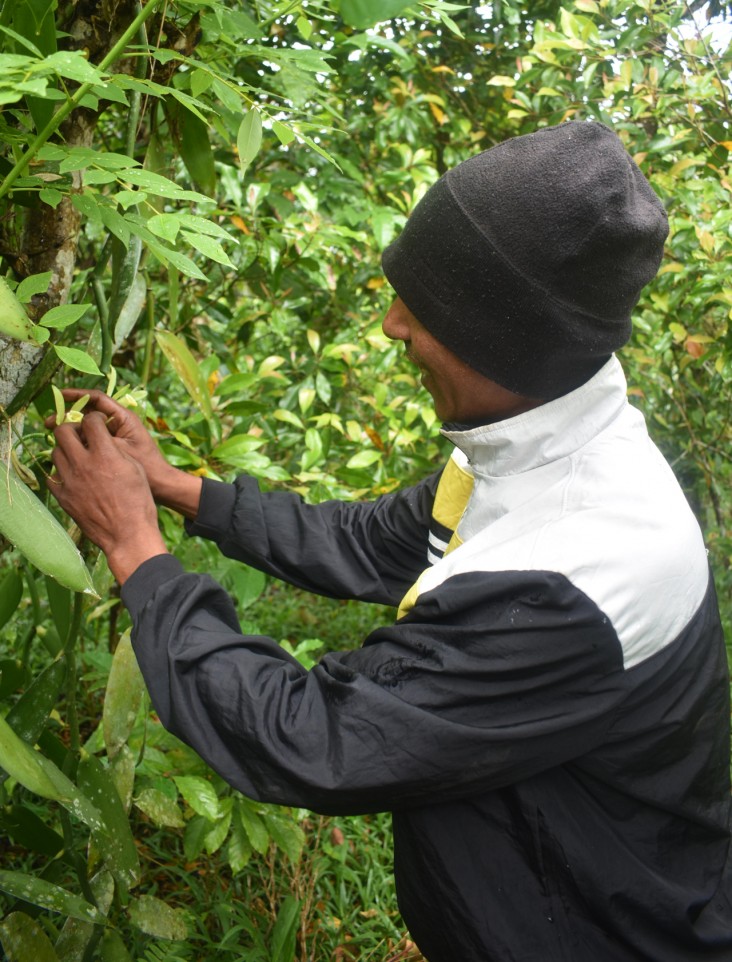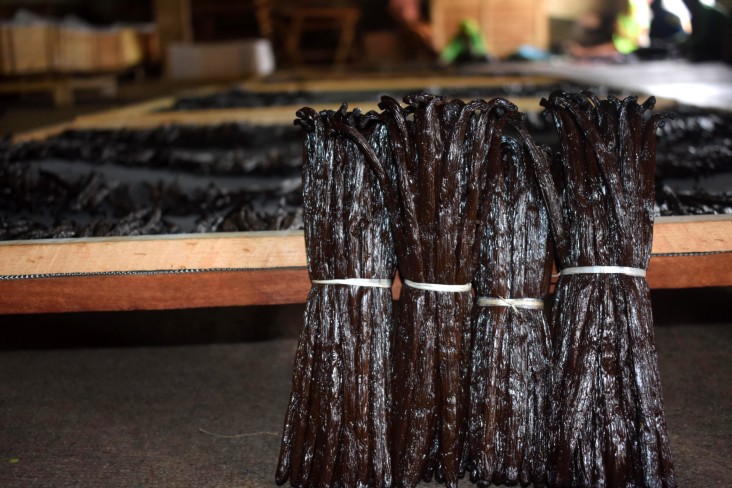Speeches Shim

Vanilla is one of the world’s most familiar and popular flavors. Few people know that the primary source for their vanilla-infused delectable treats is Madagascar. Specifically rugged, remote, rural communities in the northern and north eastern parts of the country.
Approximately 75 percent of the world’s vanilla is grown by farmers in Madagascar’s rainforests. The global market price for vanilla has fluctuated dramatically in the past few years (from $50 up to a high of $600 a kilogram). As the price of vanilla soars, so too does the pressure to clear forests to grow more vanilla. This has resulted in extensive forest fragmentation in and around some Madagascar protected areas, many of which are home to endangered species found nowhere else on earth.
USAID Mikajy and private sector partners McCormick & Company and Ramanandraibe Exportation (RAMEX), are working directly with farmer cooperatives in north eastern Madagascar to reduce the negative environmental impacts of vanilla production, while simultaneously improving farmer’s incomes and lives.
In February 2020, a total of 1,791 vanilla farmers from five cooperatives were officially certified by the Rainforest Alliance. The Rainforest Alliance provides an internationally recognized and respected certification for food producers that meet demanding sustainability standards.
The members of these Malagasy farming cooperatives will benefit by this, as they now receive premium prices for their certified highest-quality vanilla, increasing their incomes.
Achieving certification was no small task. The Rainforest Alliance requires compliance with numerous standards related to four critical areas: biodiversity conservation, improved livelihoods and human well-being, natural resource management, and effective planning and farm management systems.
The USAID Mikajy team worked closely with RAMEX for over a year to prepare for the Rainforest Alliance audit. Vanilla cooperative members received extensive training on the standards they had to meet and how to reduce negative impacts on the surrounding forest. USAID Mikajy and RAMEX mapped and conducted inspections of farmers’ vanilla fields.
Checks were also performed to make sure there was no child or forced labor, no use of chemical products, and all locations had basic sanitary facilities. USAID Mikajy and RAMEX provided technical support for traceability monitoring, data collection, and accompanied producers during vanilla collection.
To meet social and livelihoods requirements for the Rainforest Alliance certification, USAID Mikajy helped establish village savings and loans associations (VSLAs). Participants received trainings on financial management, accounting, and good governance practices.
Lucia, a VSLA treasurer, explains how the association supports its members. “When someone is sick the VSLA helps that person. We use our monthly dues to purchase medicine or to pay for a visit to the doctor’s office,” she says. “If we did not have the cooperative, we would not have the opportunity to form the VSLA.”
Now that these groups have achieved the Rainforest Alliance certification the work isn’t over. RAMEX and the cooperatives must show continuous improvement every year to stay certified. The USAID Mikajy team, in partnership with McCormick & Company and RAMEX, will continue working with the farmers and cooperatives to ensure further necessary improvements are made. Although this hard work can be very challenging at times, cooperative members are optimistic about the future.
“It makes me feel part of the community,” says Rivo, a farmer. “The main advantage of the cooperative is the honest transaction when selling my vanilla. There are no issues and I can trust the partners.”


Comment
Make a general inquiry or suggest an improvement.